Date:
The summary report outlines findings from the baseline study conducted to implement the Strategic Note 2023–2027, which guides the UN Women's work in Nepal. Divided into four outcomes, the report examines the current state of women's rights and gender equality
Date:
With USD 150,000 in annual revenue generated and significant reductions in labor time and carbon emissions, the project is a model for integrating economic empowerment and environmental sustainability.
Date:
The joint recommendations, developed for and by adolescent girls and young women, outline specific actions to tackle the gender-related obstacles encountered by girls and advance gender equity, thereby empowering them to be proactive agents of change in the global shift toward a sustainable and climate-resilient future.
Date:
The ‘Gender Strategy of the National Police of Timor-Leste (2024-2028)’ was jointly developed by the National Police of Timor-Leste, with technical support from UN Women and generous support from the Government of the United Kingdom, the Government of Canada and the Government of the Republic of Korea under the UN Women ASEAN programme Empowering Women for Sustainable Peace: Preventing Violence and Promoting Social Cohesion.
Date:
The project, aims to develop scalable interventions that can contribute to implementation of key policies in Indonesia that are relevant to the prevention of violent extremism, disaster risk reduction and resilience-building, and the protection and empowerment of women and children.
Date:
This Call to Action reflects our commitment to a sustainable and resilient future for Asia and the Pacific, highlighting that the theme of the 29th Session of the UNFCCC Conference of Parties, “In Solidarity for a Green World” cannot be realized without including diverse voices from the region’s most vulnerable to climate impacts.
Date:
Care for children, the elderly, people with disabilities, and vulnerable populations is a right and a shared responsibility. It is essential for families, societies, and economies to function and thrive.
Date:
As part of the “EmPower: Women for Climate- Resilient Societies Programme Phase II (2023-2027)”, the United Nations Environment Programme (UNEP) and the United Nations Entity on Gender Equality and the Empowerment of Women (UN Women) are partnering with regional and/or local financial institutions in target countries (Bangladesh, Cambodia, Indonesia, Philippines and Viet Nam).
Date:
Afghanistan faces severe crises, exacerbated by deepening gender inequalities under Taliban rule. More than 70 decrees restrict women’s rights, threatening progress on development goals. Despite this, Afghan women remain resilient, continuing to lead businesses and communities. This paper, marking three years since the Taliban takeover, urges the international community to prioritize women’s rights, aligning policies with human rights, especially as global challenges to gender equality intensify.
Date:
In April 2023, the co-delegates of the Pacific Partnership co-convened a regional Prevention Summitto create space for the Pacific Partnership regional partners and stakeholders to reflect and dialogue on primary prevention approaches and what is working.
Date:
Together, the United Nations Entity for Gender equality and the Empowerment of Women (UN Women) and the Government of Australia through the Department of Foreign Affairs and Trade (DFAT) are launching a new transformative initiative – the UN Women Gender Action Lab: Innovation and Impact for Gender Equality in the Asia-Pacific region, powered by the Women’s Empowerment Principles.
Date:
This National Report on the Status of Women (NRSW) highlights the environment of the country for women and girls, which shapes and influences their lives
Date:
UN Women is closely examining the opportunities and challenges for lesbian, gay, bisexual, transgender, gender diverse, intersex, and queer (LGBTIQ+) persons’ full equality and inclusion in electoral processes in 2024 and beyond.
Date:
In collaboration with the Ford Foundation, UN Women India presents 'Hum: When Women Lead' - an anthology of 75 stories of women's leadership from across India and sectors.
Date:
This submission on electoral participation and sexual orientation and gender identity closely examines the opportunities and challenges for lesbian, gay, bisexual, transgender, gender diverse, intersex, and queer (LGBTIQ+) persons’ full equality and inclusion in electoral processes.
Date:
This outcome report contains an overview of the Forum and a summary of key insights, reflections, and recommendations for prioritized action to accelerate implementation of the WEPs and progress for gender equality in the Asia-Pacific.
Date:
This toolkit—developed by the Women’s Refugee Commission (WRC) with UN Women—is a comprehensive resource to enhance the capacity of frontline humanitarian workers to integrate protection and support for adolescent boys and male youth (ABMY), including persons with diverse sexual orientation, gender identity, gender expression, and sex characteristics (SOGIESC), into protection programs.
Date:
The Afghanistan Gender Country Profile, produced with the financial support of the European Union, provides a snapshot of the current situation regarding gender equality in Afghanistan, noting the previous legal and institutional frameworks (from the period 1978–2021), and examining the current decrees, policies and practices shaping the gender equality landscape under Taliban rule.
Date:
In this issue: [1] Diagram of People reached through UN Women programme activities [2] Empower women to lead, inspire and thrive in Host Communities [3] Multi-stakeholder Consultation ...
Date:
Based on quarterly consultations in January 2024, a preliminary snapshot of 75 submissions ahead of policy discussions, and statistical modelling undertaken based on figures from the UN Sustainable Development Goals database, this two-page brief summarizes the issue, what Afghan women are saying, why it matters, and what Afghan women want the international community to do.

![[cover]](/sites/default/files/styles/search_image_140px/public/2025-04/np-20250385755-baseline-study-report-07042025-website-960px.jpg?itok=VxHBLOYs)
![[cover]](/sites/default/files/styles/search_image_140px/public/2025-01/af-c1424-unw_wee_b30_climate-960px.jpg?itok=JLbT5Yvi)
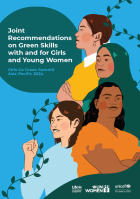
![[cover]](/sites/default/files/styles/search_image_140px/public/2024-11/gender_strategy_english_draft-960px.jpg?itok=LQ1B-nZ3)

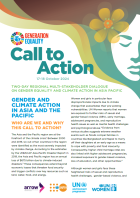
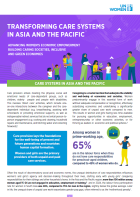
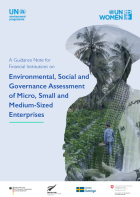
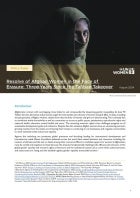

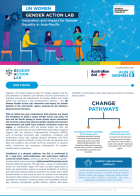
![[cover]](/sites/default/files/styles/search_image_140px/public/2024-06/pk-c972-national-report-on-the-status-of-women-960px.jpg?itok=YfC2hCVc)

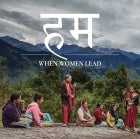
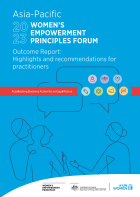
![[cover]](/sites/default/files/styles/search_image_140px/public/2024-06/hq-cx-at-risk-of-sexual-exploitation-en-960px.jpg?itok=YBrY3TwO)
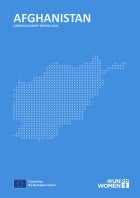

![[cover]](/sites/default/files/styles/search_image_140px/public/2024-05/af-cx-unwomenxdoha-brief_feb2024-960px.jpg?itok=nT_u0ZPw)